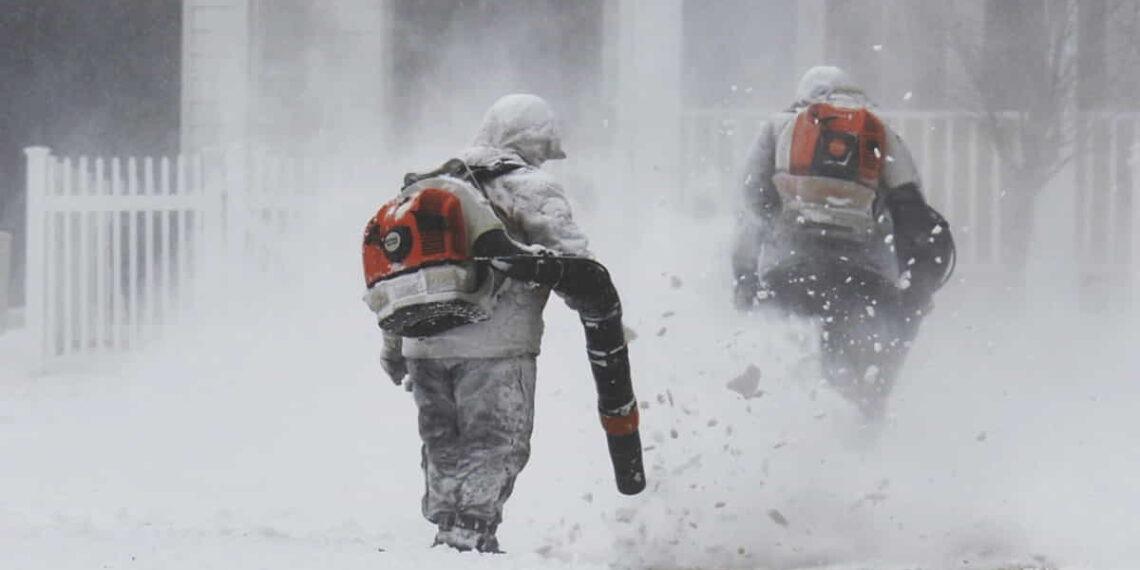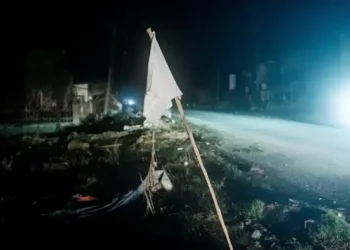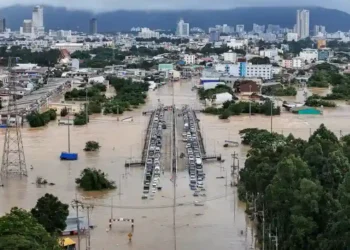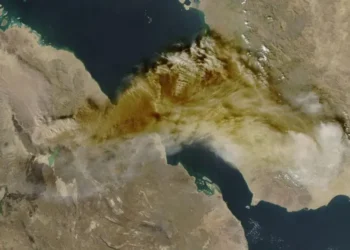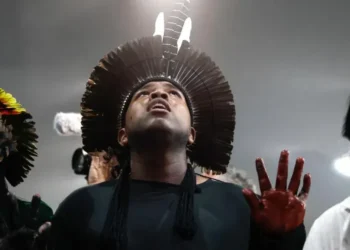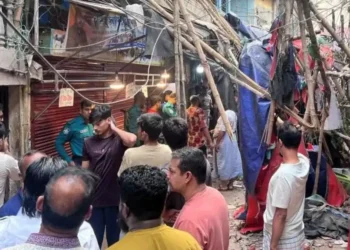Rare Winter Storm Brings Heavy Snow, Ice, and Sleet to Texas and Gulf Coast
A historic winter storm swept through Texas and the northern Gulf Coast on Tuesday, disrupting daily life with snow, sleet, and ice. The storm forced highway closures, flight cancellations, and marked the first-ever blizzard warning for parts of southeast Texas and southwest Louisiana.
Unprecedented Winter Conditions
- Blizzard Warnings Issued: Meteorologists declared the first blizzard warning in history for regions of southeast Texas and southwest Louisiana. Donald Jones, a meteorologist, called the storm “historic” and noted snow levels not seen since 1960.
- Snowfall Records: Some areas could experience 3 to 6 inches of snow, with the heaviest accumulation along the I-10 corridor, including cities like Houston, New Orleans, Mobile, and Pensacola.
Widespread Travel Disruptions
- Air Travel Chaos: Nearly 2,000 flights were canceled, with 10,000 delays reported nationwide, according to FlightAware. Houston’s airports halted all operations on Tuesday due to hazardous conditions.
- Road Safety Warnings: Houston Mayor John Whitmire advised residents to prepare for 48 hours of severe conditions, warning against travel even when skies appeared clear.
States of Emergency and Arctic Blast
Governors in Georgia, Louisiana, Mississippi, and Alabama declared states of emergency as the storm moved east. Many schools and businesses closed preemptively.
- Eastern U.S. Impact:
- Sub-freezing temperatures spread across the Eastern Seaboard, causing dangerous wind chills.
- States around the Great Lakes anticipated up to 2 feet of snow, while parts of the Northern Plains faced wind chills as low as -55°F (-48°C).
- The bitter cold was attributed to a polar vortex disruption, which caused Arctic air to push further south than usual.
Texans Brace for Severe Cold
In Texas, temperatures dropped below freezing, with Houston recording lows around 18°F (-8°C). This cold prompted residents to prepare for possible frozen pipes and power outages.
Jonathan LeBron, a plumbing manager in Houston, noted a surge in calls from homeowners worried about insulating their pipes:
“There is a little bit of panic… People remember the last freeze a few years ago and want to avoid burst pipes.”
Unusual Snowfall in Gulf Coast States
Snowfall along the Gulf Coast is rare, but this storm is setting near-record levels.
- Louisiana meteorologists warned of strong winds reducing visibility during snow bands.
- Officials urged residents to stay indoors, avoid driving, and prepare for potential power outages.
Community Reactions
- Stockpiling Supplies: Shoppers crowded supermarkets to buy food and essentials.
William Jordan of New Orleans commented:“Everyone was shopping for the same things—something warm like gumbo to get through the cold.”
- Canceled Plans: Lakesha Reed, a New Orleans caterer, missed a flight to a Mardi Gras-style event in Washington, D.C., due to the storm.
“We can barely drive in the rain, let alone snow. Last year, we wore shorts for Mardi Gras!”
Impact on Inauguration Ceremony
The extreme cold also affected national events. President Donald Trump’s inaugural ceremony had to be moved indoors to the Capitol Rotunda. It was the first indoor inauguration since Ronald Reagan’s in 1985.
A Broader Arctic Chill
- The storm’s effects extended far beyond the Gulf Coast.
- From the Rockies to the Northern Plains, temperatures stayed below normal for days.
- Wind chill advisories covered a wide region, including parts of Illinois, where temperatures dropped to -22°F (-30°C) in Chicago.
Southern California and Santa Ana Winds
While Texas and the Gulf Coast battled snow, Southern California faced another threat:
- Dry Winds and Fire Risk: Strong Santa Ana winds continued to fan flames, which have already devastated the region, killing at least 27 people and destroying thousands of homes.
Looking Ahead
As the storm moves eastward, heavy snow, sleet, and freezing rain are expected to spread across Georgia, the Carolinas, and northern Florida. Forecasters warned of sub-freezing temperatures threatening crops, plumbing, and sensitive vegetation.
Residents across the affected regions are urged to stay indoors, avoid unnecessary travel, and prepare for prolonged freezing conditions.
This article was rewritten by JournosNews.com based on verified reporting from trusted sources. The content has been independently reviewed, fact-checked, and edited for accuracy, neutrality, tone, and global readability in accordance with Google News and AdSense standards.
All opinions, quotes, or statements from contributors, experts, or sourced organizations do not necessarily reflect the views of JournosNews.com. JournosNews.com maintains full editorial independence from any external funders, sponsors, or organizations.
Stay informed with JournosNews.com — your trusted source for verified global reporting and in-depth analysis. Follow us on Google News, BlueSky, and X for real-time updates.
